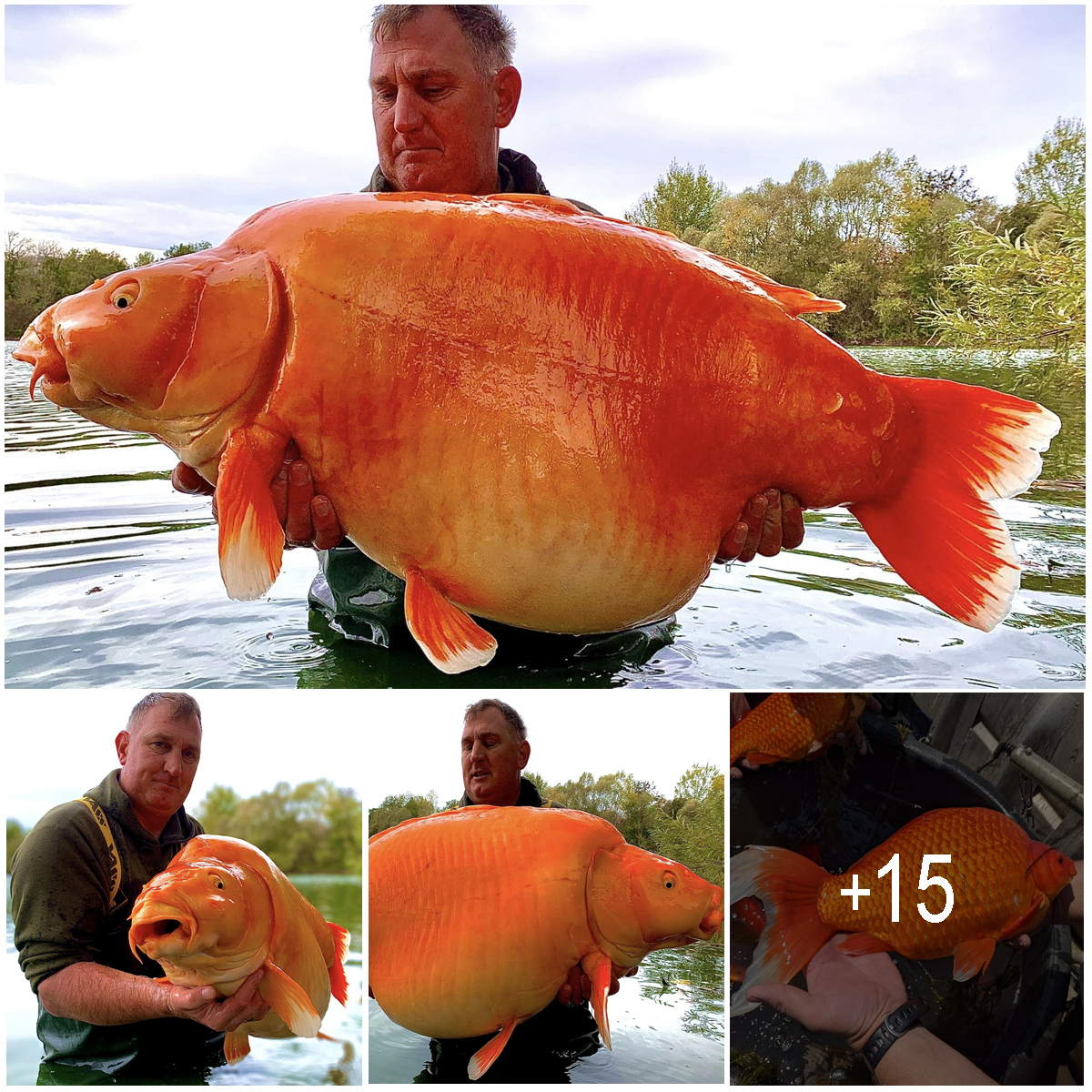The Tiliqua scincoides scincoides, commonly known as the Eastern Blue-Tongued Lizard, is native to Australia. It stands out due to its distinctive blue tongue, which it uses as a defense mechanism against predators. In addition to flashing its blue tongue, this skink hisses and puffs up its chest to assert dominance and appear larger when confronted by potential threats like large snakes and birds. The Eastern Blue-Tongued Lizard is ovoviviparous and precocial, meaning that its offspring are more developed and advanced at the time of birth. This species is non-venomous to humans and can be found in suburban and urban areas, particularly in home gardens.
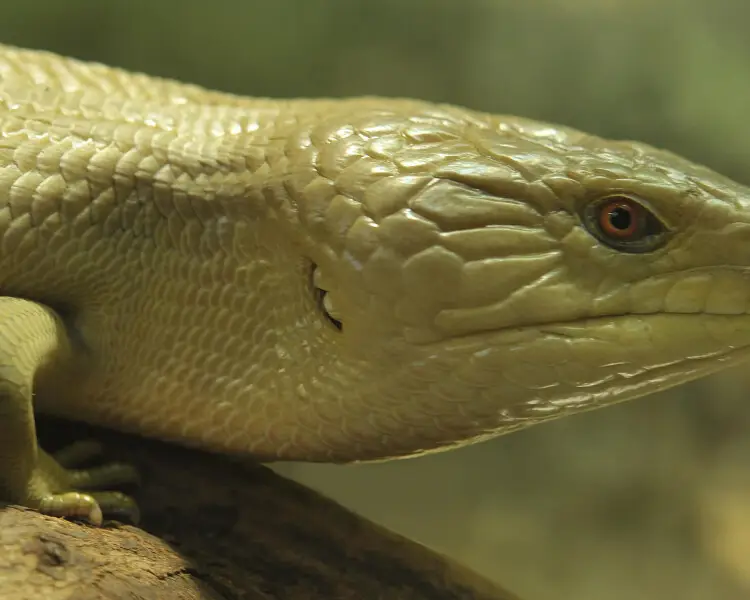
The Eastern Blue-Tongued Lizard has a compact body and short legs. This lizard typically weighs around 1 kilogram and reaches a total length of approximately 60 centimeters. Out of the 60 cm, about 360 mm consists of the lizard’s head and body. The snout-vent length measures between 300-320 mm, with the hind limb length accounting for 20% of the snout-vent length. These skinks have short and sturdy tails, with hind legs measuring roughly 62 mm and the tail length being approximately 195 mm, making up 50-75% of the snout-vent length.
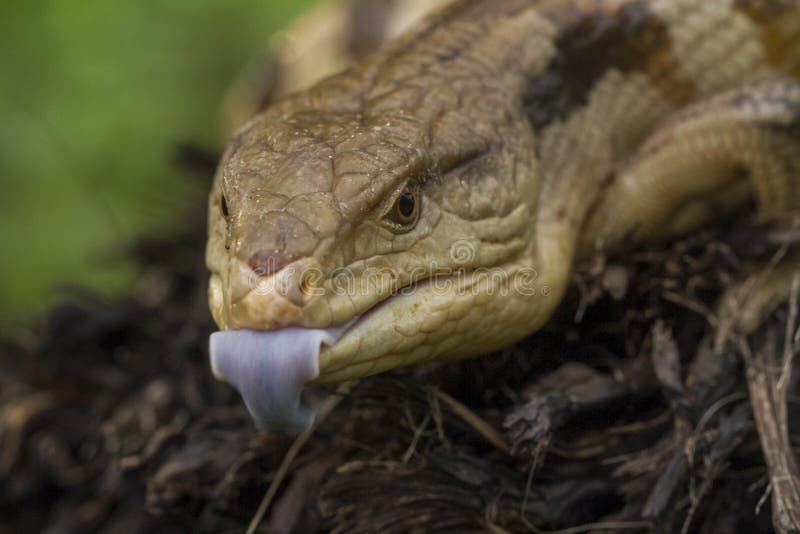
Eastern Blue-Tongued Lizards (Tiliqua scincoides scincoides) are primarily found in the coastal plains and lower Blue Mountains in Sydney, Australia, as well as in the majority of New South Wales and Cobar. These lizards are commonly seen in open country areas and seek shelter among large objects on the ground, such as logs or rocks, or amidst leaf litter.
Blue-Tongued Lizards, like all lizards, are ectothermic, meaning they cannot produce their own body heat. Due to this, they spend their mornings in the sun to warm up and maintain a body temperature ranging between 30-35 degrees Celsius when they are active. During the winter, when the weather is cold, the lizards burrow themselves in their shelter sites and remain inactive. They only venture out of their shelters on sunny days to bask in the sun. However, they do not often leave the comfort of their hollow logs and ground debris.
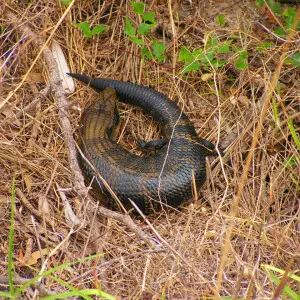
Tiliqua scincoides scincoides, the Eastern Blue-Tongued Lizard, is not venomous or lethal to humans. Bites from this skink may cause pain and leave a bruise, but they do not result in any long-term effects.
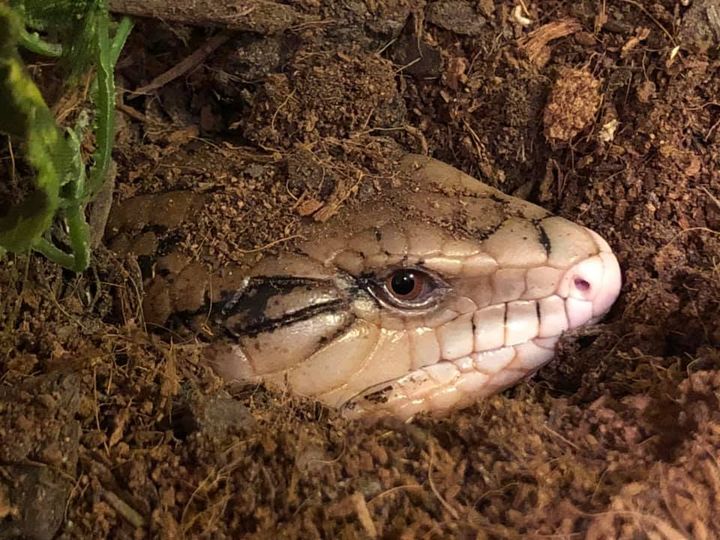
Video:





